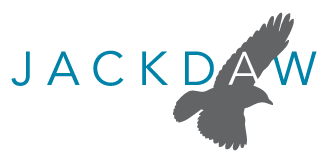Apple today held the first day keynote for its developer conference, WWDC. The comment below may be attributed to Jan Dawson, Chief Analyst, Jackdaw Research. Jan is also on-site at WWDC and can be reached at jan@jackdawresearch.com or 408 744 6244.
As has become customary in recent years, the bulk of the keynote focused on iOS, but in some ways the star of the show wasn’t a particular product but Apple’s refutation of accusations that it can’t compete with Google and Facebook in artificial intelligence and deep learning. Both terms got shout outs during the keynote, and Apple highlighted several features which it said were based on these technologies. Apple has been accused of being behind in this area, and also of being handicapped by its privacy stance, but its on-stage demos today showed that it’s capable of competing effectively regardless. The changes to Siri should make it substantially more useful and effective as an assistant, and keep it competitive with alternatives from Google, Amazon, and others. Siri will also now be available on the Mac, but in a way that’s customized for the desktop experience. Given that Siri was already present on all other Apple devices, this was an obvious next step, and it remains to be seen how Siri will interact with the existing text-based Spotlight search function on macOS.
Apple Pay on the web should help to speed adoption for Apple Pay in a way that’s been more challenging with retail payments, where updated point of sale systems are required. Anything Apple can do to spread adoption of Apple Pay should help to push forward the cycle of adoption by merchants and users, so this is good news. Obviously, it’s dependent on adoption by retailers, so it will be important to watch how this goes over the coming months.
iOS
After more modest upgrades last year, Apple was back to making more significant changes throughout iOS this year. Aside from the Siri updates, Apple redesigned the lock and home screens, and provided significant updates to Photos, Maps, Music, News, the Phone, and Messages, among other things. Specifically, Apple has now turned Siri, Maps, and Messages into platforms, each of which expands the ways in which developers can make their functionality available. All of this raises again the number of things developers have to do to keep up with all the platforms Apple offers, but it also expands the number of opportunities for developers in areas of iOS which Apple has previously kept exclusively to itself. The Messages API in particular opens up opportunities for third parties to build new business models, but interestingly Apple won’t be trying to monetize its messaging app directly, instead leaving that opportunity to others, and presumably taking a cut of any in-app purchases. Combined, these new apps will also create new apps which will exist almost entirely as extensions within Siri, Messages, or Maps, rather than as standalone apps hiding behind an app icon, and that’s a fundamental shift in Apple’s app model. It began with content blockers and keyboards in earlier versions of iOS, but these changes will have a much more significant impact.
macOS
Aside from the name change, the biggest changes with Apple’s Mac operating system related to Siri, Continuity enhancements, and iCloud Drive changes. These should all help make macOS more useful and sticker for users, but they also build on Apple’s attempts to drive ecosystem lock in across devices, notably the iPhone and the Mac. Apple continues to move macOS forward in a way that focuses on how it becomes more useful when used in conjunction with its other devices.
WatchOS and tvOS
Apple also took the opportunity to update its two smaller operating systems, watchOS and tvOS. The updates to watchOS suggest that Apple understands the biggest frustrations with the first versions, and wants to address them even before it introduces new hardware, presumably in the fall. The new Dock is a recognition that the honeycomb of app icons is a poor model, while the Instant Launch capabilities should solve the single biggest frustration with using apps on the Watch. The new social features in the Activity app close an important gap relative to competitors like Fitbit, which have majored on the social and competitive functions of fitness tracking, and the wheelchair features build on Apple’s heritage of promoting accessibility. The biggest change to tvOS is single sign on for pay-TV services, which will again eliminate one of the biggest frustrations for those providers that support it.
